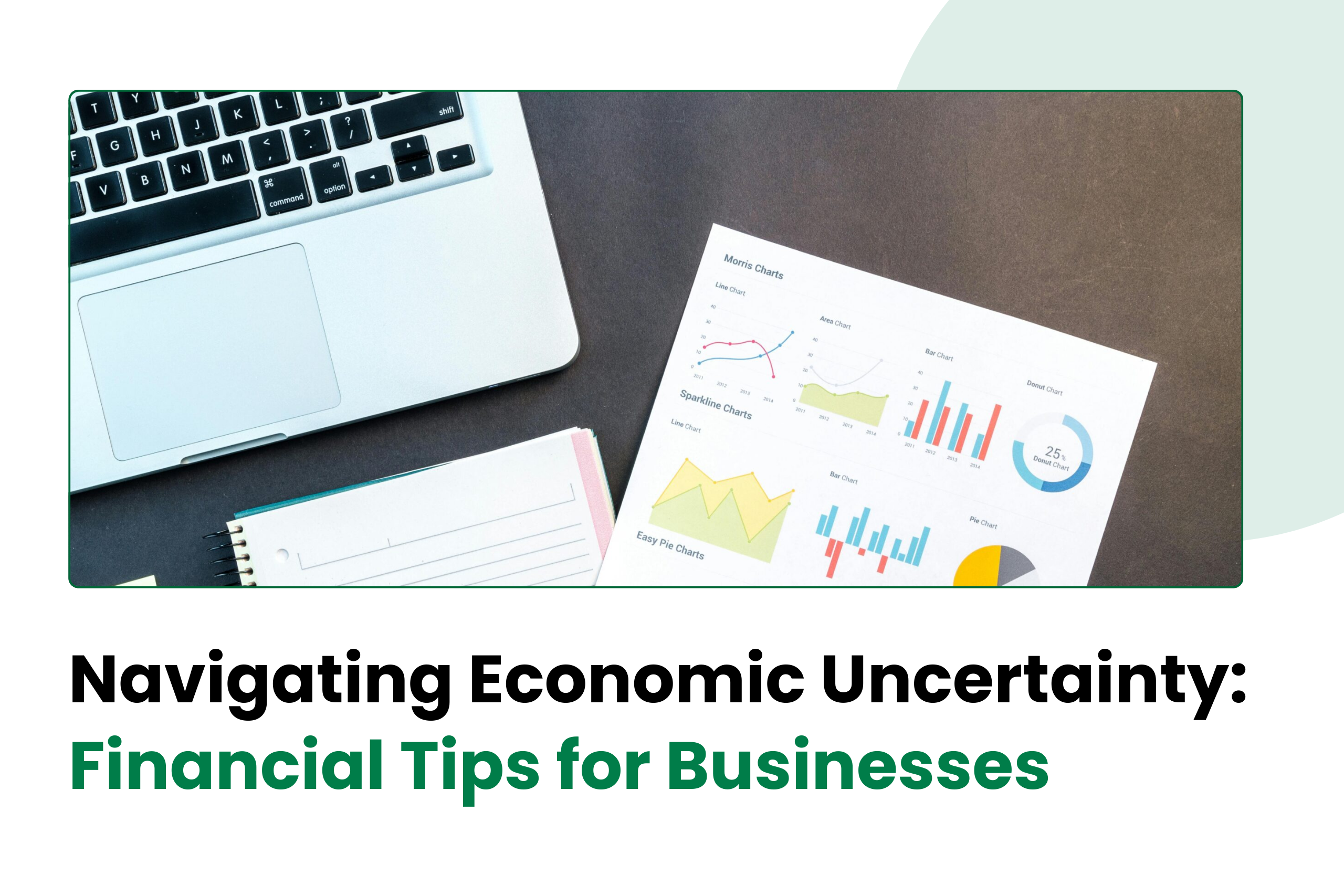Debt can often feel overwhelming, especially when you’re juggling multiple payments, varying interest rates, and due dates. Debt consolidation offers a way to simplify your financial obligations by combining multiple debts into a single payment. This approach not only makes managing your finances easier but can also save you money on interest if done correctly. Here’s a guide to help you understand how to consolidate debt effectively and take control of your financial future. What Is Debt Consolidation? Debt consolidation involves combining multiple debts into one loan or payment plan. This is typically done to: Simplify the repayment process. Secure a lower interest rate. Reduce the total monthly payment. Common forms of debt consolidation include personal loans, balance transfer credit cards, and home equity loans or lines of credit. Each option has its pros and cons, so it’s essential to choose the one that fits your financial situation best. Steps to Consolidate Debt 1. Assess Your Current Financial Situation Before consolidating debt, take a close look at your current finances. Create a list of all your debts, including: Outstanding balances Interest rates Monthly payments Understanding the full scope of your debt will help you decide whether consolidation is the right move and which method to use. 2. Check Your Credit Score Your credit score plays a significant role in determining the terms and interest rates you’ll qualify for when consolidating debt. Higher credit scores typically result in better loan terms. If your credit score isn’t where you’d like it to be, consider taking steps to improve it before applying for a consolidation loan. 3. Research Your Consolidation Options There are several ways to consolidate debt: Personal Loans: Borrow a lump sum to pay off all your debts, then make a single monthly payment on the loan. Balance Transfer Credit Cards: Transfer your existing credit card balances to a card with a low or 0% introductory APR. Be aware of transfer fees and the duration of the promotional rate. Home Equity Loans or HELOCs: Use the equity in your home to secure a loan or line of credit. This option often comes with lower interest rates but involves putting your home at risk. Debt Management Plans: Work with a credit counseling agency to negotiate lower interest rates and consolidate your payments. 4. Compare Interest Rates and Terms When choosing a consolidation option, compare the interest rates, fees, and repayment terms to ensure you’re getting the best deal. Remember, the goal is to lower your overall cost of borrowing and make repayment more manageable. 5. Create a Repayment Plan Debt consolidation isn’t a magic fix—it’s a tool to help you manage your finances more effectively. Once you consolidate your debt, create a repayment plan that ensures you’re making consistent payments on time. Budgeting and cutting unnecessary expenses can help you stay on track. Pros and Cons of Debt Consolidation Pros: Simplified repayment process. Potential for lower interest rates. Reduced monthly payments. Improved credit score with on-time payments. Cons: May require good credit to qualify for favorable terms. Risk of accruing more debt if spending habits don’t change. Some options, like home equity loans, involve collateral. Fees and upfront costs can offset savings in some cases. When to Avoid Debt Consolidation Debt consolidation isn’t always the best choice. Avoid it if: You’re unable to secure a lower interest rate than your current debts. You have a habit of overspending and may accumulate new debt. The fees associated with consolidation outweigh the benefits. In these cases, consider other strategies like debt snowball or avalanche repayment methods, which prioritize paying off debts based on their size or interest rates. Final Thoughts Debt consolidation can be a powerful tool for simplifying your financial life and saving money on interest. However, it requires discipline and a commitment to avoiding new debt. By carefully evaluating your options and creating a solid repayment plan, you can use debt consolidation to regain control of your finances and work toward a debt-free future. If you’re considering debt consolidation, Asset Commercial Credit can help! Contact us to explore your options and find the best solution for your financial needs.
The 7 Most Common Financial Mistakes People Make (And How to Avoid Them)
Managing personal finances can be a challenge, especially in today’s fast-paced world. While everyone makes mistakes, certain financial missteps are surprisingly common and can significantly impact your long-term financial health. Here are seven of the most frequent financial mistakes people make—and practical tips on how to avoid them. 1. Not Having a Budget The Mistake: Many people fail to create a budget, leaving them unaware of where their money goes. Without a clear plan, it’s easy to overspend or neglect savings goals. How to Avoid It: Use budgeting tools or apps like Mint, YNAB (You Need A Budget), or Excel spreadsheets. Follow the 50/30/20 rule: Allocate 50% of your income to needs, 30% to wants, and 20% to savings or debt repayment. Regularly review and adjust your budget to reflect changes in income or expenses. 2. Overspending on Lifestyle Upgrades The Mistake: As income increases, many people fall into the trap of lifestyle inflation—spending more on luxuries instead of saving or investing. How to Avoid It: Practice mindful spending by distinguishing between wants and needs. Set savings goals before allocating money for discretionary expenses. Automate savings so a portion of your income goes directly into a savings or investment account. 3. Neglecting an Emergency Fund The Mistake: Failing to save for emergencies can leave you vulnerable to unexpected expenses, such as medical bills or car repairs, leading to debt. How to Avoid It: Aim to save three to six months’ worth of living expenses in an easily accessible account. Start small by setting aside a fixed amount each month, even if it’s just $50. Treat your emergency fund as non-negotiable and avoid dipping into it for non-emergencies. 4. Relying Too Much on Credit Cards The Mistake: Accumulating credit card debt by spending beyond your means can lead to high interest payments and financial stress. How to Avoid It: Pay off your balance in full each month to avoid interest charges. Limit credit card usage to planned purchases within your budget. Consider using a debit card or cash for everyday expenses to prevent overspending. 5. Not Investing for the Future The Mistake: Many people delay investing because they feel it’s too complicated or think they need a lot of money to start. How to Avoid It: Start early, even if you can only invest small amounts. Compound interest works best over time. Educate yourself on basic investment concepts or seek advice from a financial advisor. Take advantage of employer-sponsored retirement plans, such as 401(k)s, especially if there’s a company match. 6. Ignoring Debt Repayment The Mistake: Carrying high-interest debt, such as credit card balances, without a repayment plan can drain your finances over time. How to Avoid It: Prioritize paying off high-interest debts first (debt avalanche method). Alternatively, tackle smaller debts first for quick wins (debt snowball method). Avoid taking on new debt unless absolutely necessary. 7. Failing to Plan for Retirement The Mistake: Many people underestimate how much they’ll need for retirement or delay saving until it’s too late to build a substantial nest egg. How to Avoid It: Start contributing to retirement accounts as early as possible, even if it’s a small amount. Use retirement calculators to estimate how much you’ll need and adjust your contributions accordingly. Consider diversified investment options to grow your retirement savings. Thoughts Avoiding these common financial mistakes requires discipline, planning, and a willingness to make informed decisions. By creating a budget, prioritizing savings, managing debt, and investing wisely, you can build a solid financial foundation and achieve long-term stability. At Asset Commercial Credit, we’re here to support you with expert financial advice and solutions tailored to your needs. Contact us today to take the next step toward financial success!
Demystifying Compound Interest: How It Works and Why It Matters
Compound interest is often referred to as the “eighth wonder of the world,” and for good reason. It has the power to significantly grow your money over time, making it a cornerstone of financial literacy and wealth-building strategies. But what exactly is compound interest, and why is it so impactful? Let’s break it down and explore how you can harness its benefits. What Is Compound Interest? At its core, compound interest is the process of earning interest on both your original investment (the principal) and any previously earned interest. Unlike simple interest, which only calculates interest on the principal, compound interest allows your money to grow exponentially over time. Formula for Compound Interest: The general formula for compound interest is: Where: A = the future value of the investment/loan, including interest P = the principal amount (initial investment) r = the annual interest rate (in decimal form) n = the number of times interest is compounded per year t = the time the money is invested or borrowed for, in years This formula highlights how compounding frequency and time can dramatically influence your returns. How Compound Interest Works Imagine you invest $1,000 at an annual interest rate of 5%, compounded annually: Year 1: Your balance grows to $1,050 ($1,000 principal + $50 interest). Year 2: Interest is calculated on $1,050, resulting in a balance of $1,102.50. Year 3: Interest is calculated on $1,102.50, growing your balance to $1,157.63. As the years go by, the amount of interest earned increases because you’re earning interest on both the principal and the accumulated interest. Now, imagine the same scenario but with monthly compounding. Your balance would grow even faster because interest is calculated and added more frequently. The Power of Time Time is one of the most crucial factors in maximizing the benefits of compound interest. The earlier you start investing or saving, the more time your money has to grow. This concept is often called the “time value of money.” Consider two investors: Investor A starts saving $200 a month at age 25 and stops at age 35, investing for 10 years. Investor B starts saving $200 a month at age 35 and continues until age 65, investing for 30 years. Assuming an annual return of 7%, Investor A ends up with more money at age 65, despite investing for a shorter period. This is the power of starting early. Why Compound Interest Matters 1. Builds Long-Term Wealth Compound interest accelerates wealth-building, especially when paired with consistent contributions over time. This is why it’s a foundational principle of retirement planning and investment strategies. 2. Encourages Saving Discipline Understanding how interest works motivates you to save and invest regularly. Even small contributions can lead to substantial growth over time. 3. Highlights the Cost of Debt While interest is your ally when investing, it can work against you when it comes to debt. Credit cards and loans with high interest rates can quickly snowball if not managed properly. Paying off high-interest debt should be a priority to avoid compounding liabilities. How to Make Compound Interest Work for You 1. Start Early The sooner you start saving and investing, the more time your money has to grow. Even small contributions in your 20s can outpace larger contributions made later in life. 2. Invest Consistently Regular contributions amplify the effects of compounding. Consider setting up automatic transfers to a savings or investment account to stay consistent. 3. Choose Investments Wisely Look for accounts or investments with competitive interest rates or returns. Options include high-yield savings accounts, mutual funds, ETFs, or retirement accounts like 401(k)s and IRAs. 4. Reinvest Earnings Reinvest dividends, interest, or returns to maximize the compounding effect. This practice ensures that your money keeps growing without interruption. 5. Avoid High-Interest Debt Debt with compounding interest, like credit card balances, can quickly erode your financial stability. Pay off debts as quickly as possible to prevent interest from accumulating. Final Thoughts Compound interest is a powerful tool that can work for or against you. By understanding how it works and applying it to your financial strategy, you can unlock significant wealth-building potential. Whether you’re saving for retirement, a major purchase, or just building an emergency fund, starting early and staying consistent are the keys to success. At Asset Commercial Credit, we’re here to help you navigate the complexities of financial planning. Contact us today to learn how you can make compound interest work for you and achieve your financial goals.
When to Seek Professional Advice: A Guide for Entrepreneurs
Entrepreneurship is a journey filled with opportunities and challenges. While the drive to handle everything independently is admirable, there are times when seeking professional advice can make the difference between success and stagnation. Knowing when to bring in an expert is crucial to navigating critical moments in your business journey. This guide will help you identify the signs that your business needs professional guidance and how to choose the right consultant. Signs Your Business Needs Expert Guidance Running a business involves many moving parts. Recognizing when external expertise is necessary can save time, money, and frustration. Here are key indicators that it’s time to seek professional advice: 1. Cash Flow Problems 2. Stagnant Growth 3. Complex Financial Decisions 4. Lack of Expertise in Specific Areas 5. Overwhelming Workload 6. Preparing for Major Transitions 7. Frequent Compliance Issues How to Choose the Right Consultant Finding the right professional to guide your business is as important as recognizing when you need help. Here are steps to ensure you choose the best consultant for your needs: 1. Define Your Needs 2. Check Credentials and Experience 3. Assess Their Approach 4. Seek Recommendations and Reviews 5. Consider Compatibility 6. Evaluate Cost and Value 7. Request a Proposal The Benefits of Seeking Professional Advice Investing in professional guidance can lead to significant advantages: Take the Next Step with Confidence Recognizing when to seek professional advice is a sign of strong leadership, not weakness. By bringing in the right expertise at the right time, you can overcome challenges, seize opportunities, and propel your business forward. At Asset Commercial Credit, we specialize in providing tailored financial consulting services to help businesses of all sizes achieve their goals. Whether you’re facing cash flow challenges, planning for growth, or navigating complex financial decisions, our team is here to guide you every step of the way. Contact us today to schedule a free consultation and discover how we can support your business journey.
The Importance of Financial Planning for Small Businesses
For small businesses, financial planning is not just a tool—it’s a necessity. Whether you’re launching a startup or managing an established company, effective financial planning is the foundation for sustainability and growth. A robust plan helps you navigate uncertainties, make informed decisions, and capitalize on opportunities. In this blog, we’ll explore why financial planning is crucial for small businesses and provide a step-by-step guide to creating a solid financial plan. Why Financial Planning Matters 1. Ensures Sustainability 2. Facilitates Growth 3. Improves Decision-Making 4. Prepares for Uncertainties 5. Attracts Investors and Lenders Step-by-Step Guide to Creating a Financial Plan Step 1: Assess Your Current Financial Situation Step 2: Define Your Business Goals Step 3: Create a Budget Step 4: Forecast Revenue and Expenses Step 5: Develop a Cash Flow Management Strategy Step 6: Plan for Taxes Step 7: Create a Funding Strategy Step 8: Monitor and Review Your Plan Tips for Successful Financial Planning Conclusion Effective financial planning is the cornerstone of success for small businesses. It provides the clarity and direction needed to navigate challenges, seize opportunities, and achieve your goals. By following the steps outlined above, you can create a robust financial plan that supports sustainability and drives growth. At Asset Commercial Credit, we specialize in helping small businesses develop and implement customized financial strategies. Whether you need assistance with cash flow management, funding, or financial forecasting, our team is here to help. Contact us today to schedule a consultation and take the first step toward securing your business’s financial future.
Navigating Economic Uncertainty: Financial Tips for Businesses
Economic uncertainty is a reality that businesses of all sizes must face. Recessions, market fluctuations, and global crises can create challenges that test the resilience of even the most prepared organizations. However, with the right strategies, businesses can safeguard their finances and emerge stronger. This blog offers practical tips to help businesses navigate unpredictable market conditions effectively. Understanding the Impact of Economic Uncertainty Economic uncertainty often leads to: Recognizing these potential impacts allows businesses to take proactive steps to mitigate risks and maintain stability. Financial Strategies for Navigating Uncertainty 1. Strengthen Cash Flow Management 2. Build a Contingency Fund 3. Diversify Revenue Streams 4. Optimize Operational Efficiency 5. Negotiate with Suppliers and Lenders 6. Invest in Financial Forecasting 7. Strengthen Your Credit Profile 8. Focus on Customer Retention 9. Review and Adjust Pricing Strategies 10. Stay Informed and Adaptable Additional Tips for Long-Term Resilience Conclusion Economic uncertainty can be daunting, but it also presents an opportunity for businesses to strengthen their foundations. By implementing the strategies outlined above, you can safeguard your finances and position your business for long-term success, regardless of market conditions. At Asset Commercial Credit, we understand the challenges businesses face during uncertain times. Our team of experts is here to provide tailored financial solutions to help you navigate complexity with confidence. Contact us today to learn how we can support your financial resilience.
The Role of Financial Forecasting in Business Success
Financial forecasting is a critical component of effective business management. It involves predicting future revenues, expenses, and cash flows based on historical data, market trends, and other variables. By offering a glimpse into the future, financial forecasting helps businesses set realistic goals, anticipate challenges, and make informed decisions. In this blog, we’ll explore the importance of financial forecasting, its key benefits, and how businesses can use it to drive success. What is Financial Forecasting? Financial forecasting is the process of estimating future financial outcomes for a business. It typically involves: Forecasts can range from short-term predictions, such as monthly cash flow projections, to long-term forecasts that span several years. How Financial Forecasting Helps Businesses 1. Setting Realistic Goals 2. Improving Decision-Making 3. Preparing for Challenges 4. Enhancing Financial Stability 5. Attracting Investors and Lenders Steps to Effective Financial Forecasting Step 1: Gather Historical Data Step 2: Analyze Market Trends Step 3: Identify Key Drivers Step 4: Create Scenarios Step 5: Use Technology Step 6: Review and Adjust Regularly Benefits of Financial Forecasting Conclusion Financial forecasting is more than just a numbers game—it’s a strategic tool that empowers businesses to plan for success. By setting realistic goals, anticipating challenges, and making informed decisions, businesses can navigate uncertainties with confidence and achieve sustainable growth. At Asset Commercial Credit, we specialize in helping businesses develop accurate and actionable financial forecasts. Whether you’re a startup or an established enterprise, our team is here to support your journey toward financial stability and success. Contact us today to learn more about our financial forecasting services and how we can help your business thrive.
Seasonal Demands, Fluctuations and invoice factoring
Many businesses face seasonal fluctuations in demand, with peak periods bringing in a surge of orders and slower months creating cash flow challenges. Managing these highs and lows effectively is essential to maintain operations, pay employees, and invest in growth. Invoice factoring offers a reliable solution to bridge the financial gaps caused by seasonal fluctuations. In this blog, we’ll explore how businesses can leverage invoice factoring to navigate seasonal demands with confidence. Understanding Seasonal Fluctuations Seasonal fluctuations impact a wide range of industries, including: During these fluctuations, businesses often encounter: How Invoice Factoring Supports Seasonal Businesses Invoice factoring provides immediate cash flow by allowing businesses to sell their unpaid invoices to a factoring company. This funding solution offers several benefits for managing seasonal fluctuations: Real-Life Example: Retail Business During the Holiday Season A small retail business experiences a surge in sales during the holiday season. To meet customer demand, they need to stock up on inventory and hire temporary staff. However, many customers pay invoices on 30- or 60-day terms, creating a cash flow gap. By factoring their invoices, the retailer: Invoice Factoring vs. Traditional Loans for Seasonal Needs Feature Invoice Factoring Traditional Loans Approval Process Based on customer creditworthiness Based on business credit and collateral Funding Speed Fast (24-48 hours) Slower (weeks to months) Repayment Terms Tied to invoice payments Fixed monthly payments Debt-Free Financing Yes No Flexibility Scales with invoice volume Fixed loan amount Tips for Seasonal Businesses Using Invoice Factoring Why Invoice Factoring is Ideal for Seasonal Fluctuations Invoice factoring isn’t just a short-term fix—it’s a strategic tool for managing the cyclical nature of business. By unlocking the value of receivables, businesses can: Embrace Financial Stability Year-Round Seasonal fluctuations don’t have to disrupt your business. With invoice factoring, you can navigate the ups and downs with confidence, ensuring consistent cash flow and operational stability. Contact Asset CC today to learn how our tailored factoring solutions can support your business through seasonal demands. Let us help you turn unpaid invoices into the working capital you need to thrive.
How Different-Sized Businesses Use Invoice Factoring
Invoice factoring is a versatile financing tool that benefits businesses of all sizes. By converting unpaid invoices into immediate cash, it helps businesses maintain steady cash flow, invest in growth, and meet financial obligations. Whether you run a small startup, a growing mid-sized company, or a large enterprise, invoice factoring offers tailored solutions to address your unique challenges and opportunities. Let’s explore how different-sized businesses leverage this funding option. Small Businesses and Startups Small businesses and startups often face unique hurdles, including limited cash flow, difficulty securing traditional loans, and long payment terms from customers. Invoice factoring provides a lifeline for these companies, offering: Example: A small marketing agency uses invoice factoring to pay salaries and rent while waiting for payments from large corporate clients with extended payment terms. Mid-Sized Businesses For mid-sized companies experiencing growth, invoice factoring helps manage increased operational demands and cash flow challenges. These businesses often use factoring to: Example: A mid-sized manufacturing company factors its invoices to purchase raw materials in bulk, taking advantage of supplier discounts and fulfilling larger orders. Large Enterprises Even established enterprises can benefit from invoice factoring, particularly when managing high volumes of receivables or dealing with extended payment terms. Large companies use factoring to: Example: A multinational logistics company factors invoices from global clients to maintain steady cash flow while investing in fleet expansion. Key Benefits Across All Business Sizes Regardless of size, businesses that use invoice factoring enjoy: Choosing the Right Factoring Partner When selecting a factoring provider, businesses should consider: Unlock the Power of Invoice Factoring Whether you’re a small business, a mid-sized company, or a large enterprise, invoice factoring can help you achieve financial stability and growth. By unlocking the value of your receivables, you can focus on what matters most: running and growing your business. Contact Asset CC today to learn more about how our tailored invoice factoring solutions can support your business’s unique needs. Let’s work together to build a financing strategy that drives your success.
Simplifying Business Credit Solutions
In today’s dynamic economic landscape, access to reliable and straightforward business credit solutions is essential for growth and sustainability. However, many businesses face challenges navigating the complex web of financing options, requirements, and processes. Simplifying business credit solutions not only saves time but also empowers businesses to focus on their core operations. In this post, we’ll explore how businesses can streamline their access to credit and the benefits of choosing simplified financing options. The Challenges of Traditional Business Credit Traditional credit solutions, such as bank loans or lines of credit, often come with hurdles that can slow down or complicate the process for businesses: These challenges underscore the need for simplified and accessible credit solutions tailored to modern business needs. Key Features of Simplified Business Credit Solutions Simplified business credit solutions aim to remove barriers and provide quick, flexible access to financing. These solutions often include: Types of Simplified Business Credit Solutions Benefits of Simplified Credit Solutions Simplified business credit solutions provide several key advantages: How to Choose the Right Credit Solution When selecting a simplified credit solution, consider the following: Simplify Your Financing with Asset CC At Asset CC, we understand that navigating business credit options can be overwhelming. That’s why we offer tailored, straightforward financing solutions designed to meet your unique needs. Whether you’re looking to improve cash flow, invest in growth, or bridge financial gaps, our team is here to help. Contact us today to learn more about how we can simplify your access to business credit and help you achieve your financial goals.










